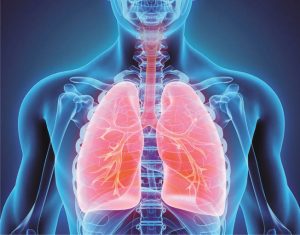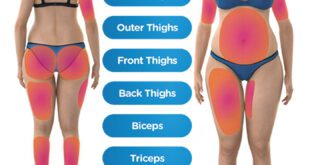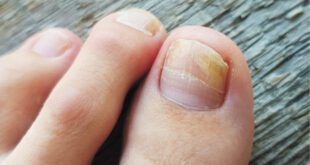 November is Lung Cancer Awareness Month, highlighting the country’s leading cause of cancer death. Though it may not get as much attention as other cancers, lung cancer accounts for a startling 23% of all cancer deaths. The American Cancer Society estimates that at the close of 2022, the US will see more than 236,700 new diagnoses of lung cancer, and 130,180 related fatalities. What could change these numbers through the years ahead? Early discovery. Because, when caught and treated early, lung cancer is highly survivable.
November is Lung Cancer Awareness Month, highlighting the country’s leading cause of cancer death. Though it may not get as much attention as other cancers, lung cancer accounts for a startling 23% of all cancer deaths. The American Cancer Society estimates that at the close of 2022, the US will see more than 236,700 new diagnoses of lung cancer, and 130,180 related fatalities. What could change these numbers through the years ahead? Early discovery. Because, when caught and treated early, lung cancer is highly survivable.
With effective screening, lung cancer can be diagnosed and treated while it is small and localized. Ignored, lung cancer can spread quickly to other organs and areas of the body, making it nearly impossible to treat. Early in its course, lung cancer typically produces no symptoms, so routine screening produces the best chance of early discovery.
Who Gets Lung Cancer?
Lung cancer can be attributed to a variety of factors, including family history and exposure to
certain toxins, but the leading cause by far is cigarette smoking, which is linked to roughly 80-90% of lung cancer deaths. While nonsmokers can get lung cancer, smokers are 15 to 30 times more vulnerable. And the heavier and longer a person smokes, the higher the risk becomes.
Am I At Risk?
If you are 50 or older and a current or former heavy smoker, the short answer is yes – particularly if you have reached the dangerous criterion of 20 “pack years.” Calculating pack years is done by multiplying the number of years you have spent smoking by the average number of packs you smoked per day.
Examples: 1 pack a day x 20 years = 20 pack years
2 packs a day x 10 years = 20 pack years
Compounding factors, such as a personal or first-degree family history of asthma, COPD, chronic bronchitis or other lung disease, can elevate lung cancer risk even more.
What Can I Do to Protect Myself?
Quit smoking. The health benefits of quitting, like better breathing, more energy, and improved sense of taste and smell, become obvious rather quickly. In the weeks following quitting, your risk of heart attack begins to drop significantly. In as little as a year, you cut your associated risk of coronary heart disease in half! And data shows that even if you quit after
age 60, your risk of dying at any age is reduced by roughly 39%. That’s pretty amazing.
Even if you have tried unsuccessfully before, don’t be discouraged. Most people who have quit for good didn’t succeed on the first try, or the second, or the third. Quitting can be very hard, but it is doable!
Talk to your clinician about new medications and therapies to help you quit. Your life is worth the effort.
Talk to your doctor about LDCT screening. The U.S. Preventive Services Task Force (USPSTF) recommends annual LDCT lung cancer screening for individuals who meet these three criteria:
1. Are age 50-77
2. Currently smoke or quit within the past 15 years
3. Have reached or surpassed 20 pack-years
According to recent data, LDCT provides a 15-20% reduced risk of lung cancer death compared to standard chest x-ray, making it the recommended lung cancer screening of the USPSTF and the American Lung Association. So, talk to your doctor or referring clinician about your smoking and medical history to determine if LDCT might be right for you.
With a qualified referral, most patients are eligible to have their LDCT scans covered by insurance.
What Is an LDCT Scan Like?
This sophisticated computer-based x-ray scan is remarkably easy. You will be asked to lie on a table while the scanner uses a low dose of radiation to capture detailed images of your lungs. The scan takes only a few minutes and is completely painless. Afterward, you are free to move on with your day as normal. It takes just a few minutes to help protect the years ahead.
Why Choose RAO for LDCT?
Since 1973, RAO has been dedicated to outstanding diagnostic and interventional care utilizing the most advanced and accurate technologies. We offer LDCT lung screening at our state-of-the-art Medical Imaging Center and TimberRidge Imaging Center.
Our team of highly trained, experienced subspecializing radiologists is dedicated to your care and, when needed, will work with your referring clinician to help stage treatment.
Talk to your clinician about LDCT screening. If it’s right for you, RAO is here to provide proven, leading-edge care.
Radiology Associates of Ocala
www.RAOcala.com
352-671-4300
 Central Florida Health and Wellness Magazine Health and Wellness Articles of the Villages
Central Florida Health and Wellness Magazine Health and Wellness Articles of the Villages



